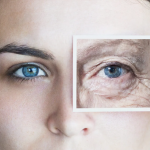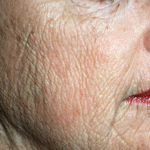Stress is an inescapable part of modern life, and its impact on our physical health is well-documented. Among the various health issues it can exacerbate, skin problems are particularly prevalent. Dermatologists often see a direct correlation between stress and the worsening of skin conditions. This article delves into how stress triggers skin issues, the most common skin problems related to stress, and expert advice on managing both stress and skin health.
What Happens to the Skin Under Stress?
When the body encounters stress, it initiates a complex response involving the nervous, endocrine, and immune systems. Here’s how stress impacts the skin:
- Hormonal Changes: Stress triggers the release of cortisol, a hormone that increases oil production in the skin, potentially leading to acne and other skin problems.
- Immune Response: Chronic stress can weaken the immune system, making the skin more susceptible to infections and slower to heal.
- Inflammation: Stress increases the levels of inflammation in the body, which can exacerbate inflammatory skin conditions such as eczema and psoriasis.
- Barrier Function: Stress can impair the skin’s barrier function, leading to dryness, irritation, and an increased risk of allergens and irritants penetrating the skin.
Top Skin Problems Triggered by Stress
- Acne: Increased oil production and inflammation can lead to clogged pores and acne outbreaks.
- Eczema (Atopic Dermatitis): Stress can exacerbate eczema symptoms, causing more intense itching and flare-ups.
- Psoriasis: Stress-induced inflammation can trigger or worsen psoriasis, leading to red, scaly patches on the skin.
- Rosacea: Stress can cause blood vessels in the face to dilate, worsening the symptoms of rosacea.
- Hives (Urticaria): Stress can trigger the release of histamines, leading to the development of itchy hives.
- Hair Loss (Telogen Effluvium): Significant stress can push hair follicles into a resting phase, leading to hair shedding and thinning.
Top Causes of Stress
Understanding the root causes of stress can help in managing its impact on the skin. Common sources of stress include:
- Work-Related Pressure: High workloads, tight deadlines, and job insecurity.
- Financial Concerns: Worries about debt, bills, and general financial stability.
- Personal Relationships: Strain in relationships with family, friends, or partners.
- Health Issues: Chronic illness or the stress of caring for a sick loved one.
- Life Changes: Major events such as moving, marriage, divorce, or the birth of a child.
Self-Remedies for Managing Stress and Related Skin Problems
Dermatologists recommend a holistic approach to managing stress and its effects on the skin:
- Mindfulness and Meditation: Practices such as mindfulness, meditation, and yoga can reduce stress levels and improve overall well-being.
- Regular Exercise: Physical activity helps reduce stress hormones and promotes the release of endorphins, improving mood and skin health.
- Balanced Diet: Eating a diet rich in antioxidants, vitamins, and minerals supports skin health and reduces inflammation.
- Adequate Sleep: Quality sleep is crucial for skin repair and stress management.
- Skin Care Routine: Maintain a consistent skin care routine with gentle, non-irritating products. Consider using products with anti-inflammatory ingredients like niacinamide and aloe vera.
- Hydration: Staying hydrated helps maintain the skin’s barrier function and overall health.
- Professional Help: Seeking therapy or counseling can be beneficial in managing chronic stress and its physical manifestations.
Dermatologists’ Advice
- Consult Early: If you notice skin problems worsening with stress, consult a dermatologist early to prevent severe flare-ups.
- Tailored Skin Care: Use skincare products that are suitable for your skin type and conditions. Avoid harsh ingredients that can aggravate stress-related skin issues.
- Stress Management Techniques: Incorporate stress management techniques into your daily routine. Techniques such as deep breathing exercises, progressive muscle relaxation, and cognitive-behavioral strategies can be very effective.
- Regular Check-ups: Regular dermatological check-ups can help monitor skin conditions and adjust treatments as necessary.
Conclusion
Stress can undeniably be a significant triggering factor for various skin problems. By understanding the connection between stress and skin health, and adopting both lifestyle changes and proper skincare routines, individuals can mitigate the adverse effects of stress on their skin. Dermatologists emphasize the importance of a holistic approach, addressing both the mind and the body to maintain healthy, stress-free skin.










